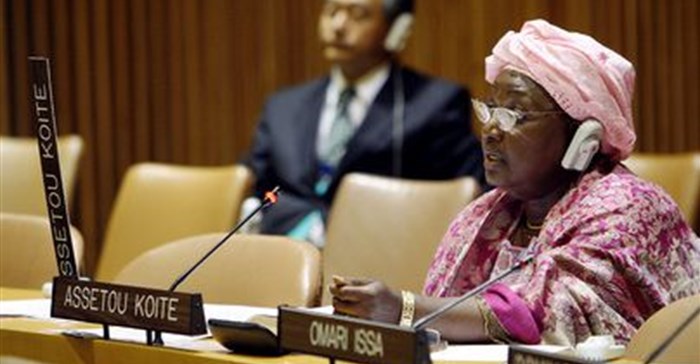
PAWO seeks recognition for African women leaders

“Our continent historically has been blessed with numerous female revolutionaries. Moreover, what is evident is that PAWO has become a transnational feminist movement. This movement has been instrumental in forging international consensus on a rights-based approach to women's rights,” Koite said on Tuesday, 31 July.
She was speaking at the 2018 Pan African Women’s Day held at the Department of International Relations and Cooperation (DIRCO) in Tshwane. The event was hosted by DIRCO in collaboration with PAWO under the theme ‘Celebrating a Legacy of Liberation by the Pan African Women: Taking forward the Struggle for Gender Equality’.
The celebration marked the 56th anniversary of the formation of PAWO and was an opportunity to highlight its achievements. It focused on revitalising PAWO, as well as building a progressive women’s movement in Africa. The celebration coincided with the 100th year commemoration of the formation of the Bantu Women’s League and comes on the eve of South Africa entering Women's Month in August.
Change comes from within
Koite said continental and sub-regional influences seem to have a bigger impact on driving the agenda for changing the status of women.
“They are perhaps more important than global transnational influences as a vehicle for changing the status of women. Today, most of the impetus for change comes from within Africa and from regional-level networks.
“This may explain why there is greater openness to these changing norms at present, even as resistance to advancing women's rights continues. Africa has, for example, emerged as a global leader in promoting women's leadership in politics,” Koite said.
She stressed the importance for a formation like PAWO to unite and organise women who are skilled, educated, and gifted with leadership and organisational skills, to ensure that gender equality truly manifests itself in society.
“We must ask ourselves what it means to move the baton from Queen Nzinga, Jean Martin Cisse, Maria Ruth Neto, Winnie Madikizela Mandela, Gertrude Mongella, Wangari Mathaii, Albertina Sisulu and many others to the next generation.
“How do we recalibrate the women’s movement so that it can continue to champion issues which relate to the plight of women? What does it mean to reimagine a society [that can] achieve real gender equality?” Koite said.
Mainstreaming gender politics
PAWO secretary-general and communications deputy minister Pinky Kekana called on women organisations to support government in its programmes aimed at addressing gender issues.
“We now have to make the gender agenda an agenda for everybody,” Kekana said, adding that sufficient resources must be put behind women’s programmes.
The deputy minister of telecommunications and postal services, Stella Ndabeni-Abrahams, expressed her appreciation to the women who took part in the struggle for emancipation, saying this paved the way for today’s generation, who are now beneficiaries of the struggle.
“We have a responsibility to appreciate where [they] come from and what [they] went through for us to be where we are,” Ndabeni-Abrahams said.
She urged women in positions of authority to ensure that they push wherever they are, and encourage government and the private sector to play their part in striving to get a better deal for women.
Dealing with gender-based violence
The founder of Youth Unite, Victoria De Beer, said gender-based violence (GBV) will continue to be a serious issue, as long as the root cause is not dealt with.
“We need to stand up and deal with those issues and say ‘enough is enough’,” De Beer said.
Government, meanwhile, has called on all men to sign the #100MenMarch Pledge, and boldly declare that violence against women and children will not be tolerated in their respective environment or communities.
Related
Minister Ndabeni-Abrahams to inspect spaza shops for compliance and safety 9 Dec 2024 VUT and Sisulu Foundation partner for social justice and ethical leadership in education 19 Nov 2024 Over 100 informal traders receive equipment in Greater Tzaneen 11 Oct 2024 #WomensMonth: Tatjana Smith, SA's most successful Olympian, "Every month should be Women's Month" 31 Aug 2024 #WomensMonth: Deidre Lodwig, MTN United MD – One day we can stop fighting for our space 26 Aug 2024 Celebrating Women’s Day: South Africa’s legacy of courage and change 12 Aug 2024























